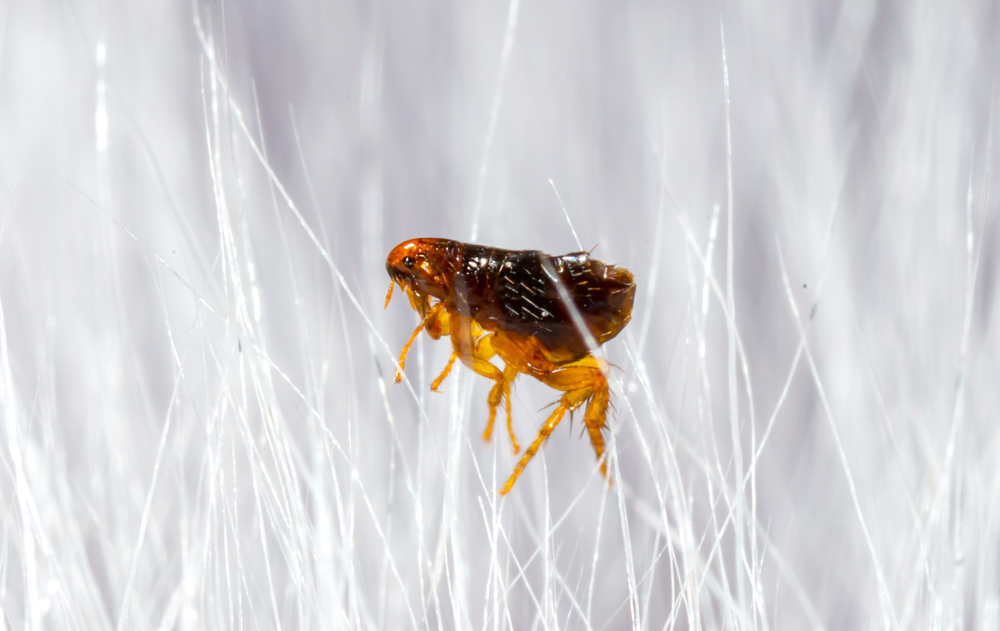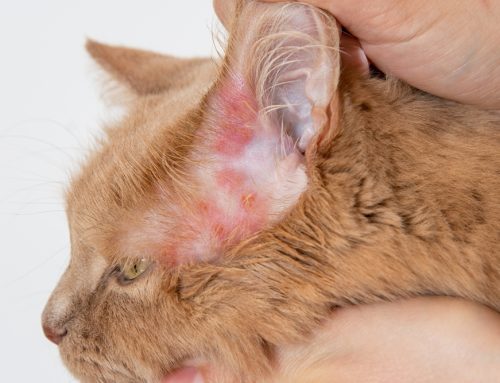Most pet owners squirm at the thought of parasites on their pet, but the fact is, nearly all pets will contract a parasite at some point. Parasites don’t care about your pet’s diet, where they live, or how clean you keep your home—they are equal-opportunity pesky critters that can infest your pet’s skin or fur or live internally in their heart, intestines, or other organs.
Some parasite infestations cause only mild irritation, but others can lead to serious illness or death. Keeping your pet parasite-free through preventive measures and frequent testing is the best way to preserve their health and avoid associated diseases. The Chiefland Animal Hospital team explains how parasites can impact pet health and how you can combat them.
How common parasites affect your pet’s health
Parasites can live internally or externally on your pet. Here are the most common parasites and their effect on the health of dogs and cats:
- Fleas — Fleas live and reproduce on a pet’s skin, biting often to feed on their blood. Flea bites can cause an itchy allergic disease called flea allergy dermatitis (FAD) and can transmit not only some diseases but also tapeworms, which are intestinal parasites. Severe flea infestations in young dogs or cats may cause anemia from blood loss.
- Ticks — Ticks live freely, but crawl on pets to feed on their blood during their molting and growth cycles. Tick bites can cause local skin irritation or infection, but tick-borne diseases, including Lyme disease, are more serious concerns.
- Mites — Skin and ear mites are extremely tiny parasites that burrow into the skin and cause itching, inflammation, and hair loss. Most mites are species-specific, but the Sarcoptes mite, which is contagious and extremely itchy, can infest dogs, cats, and humans.
- Intestinal worms — Roundworms, hookworms, and whipworms live in a pet’s intestines, often causing chronic diarrhea or other digestive issues. Like fleas, heavy infestations can sometimes cause anemia from blood loss or malnutrition in young animals.
- Giardia — Giardia is a single-celled protozoan parasite that is especially common among social dogs, because transmission is relatively quick and easy. Giardia typically causes diarrhea but can go asymptomatic.
- Heartworms — Heartworms live and reproduce inside a pet’s heart and lung blood vessels, causing irreversible damage and inflammation over time. Untreated heartworm infections may lead to heart failure or death, sometimes suddenly.
Pet parasite exposure and transmission
All pets are at risk for parasite exposure, because most parasites have tricky transmission methods, and your pet cannot live in a bubble. Here are the most common ways that pets can contract parasites:
- Close contact with other pets — Your pet can pick up fleas or Giardia from infested pets who are in close contact.
- Environmental contamination — Infective parasite forms may be passed into the environment, where other pets are exposed and can contract the parasite themselves. This is common with fleas, intestinal parasites, Giardia, mites, and ticks.
- Vertical transmission — Most puppies and kittens are born with roundworms or hookworms, or acquire them shortly after birth from their mother, who likely was infected by her mother years before. This is the case despite mom’s parasite tests coming back negative, because the worms burrow into muscle tissue, become dormant and undetectable, and then reactivate during pregnancy.
- Vector-borne transmission — Tapeworms and heartworms are examples of vector-transmitted parasites. Pets who eat an infected flea can get tapeworms, and mosquitoes can transmit heartworms through their bites.
Pet parasite prevention strategies

You can’t protect your pet from all parasite exposures, but you can implement preventive measures to greatly reduce infestation opportunities. The mainstay of preventive therapy is using one or more parasite prevention products, which are long-acting medicines that our veterinary team will prescribe. A single oral dose or topical application of these medications prevents and treats parasites for a month or longer, depending on the specific product.
In our practice, we recommend Simparica Trio for dogs, because this one product protects against fleas, ticks, heartworms, roundworms, and hookworms. Other products have more limited activity ranges, so you may need to use more than one for complete coverage. Cats require products specifically designed for their unique body chemistry. Talk to our veterinary team to determine which product or products are right for your pet according to their individual risk factors and needs.
Routine parasite screenings are also important for prevention. We recommend annual stool sample checks for intestinal parasites and blood sampling for heartworms, which can be performed at your pet’s annual wellness visit, when we will also check their skin and coat for external parasites. If you have a highly social pet who attends daycare, boarding facilities, or dog parks, or your cat often goes outdoors or hunts, we may recommend more frequent screenings because they are higher risk.
For more detailed information about specific parasites and your pet, visit the Pets and Parasites website operated by the Companion Animal Parasite Council (CAPC).
Parasite prevention is a crucial component of your pet’s overall care and may help avoid serious illnesses that impact their longevity or quality of life. Keep your pet comfortable, healthy, and by your side longer by investing in annual wellness and parasite screening exams by our Chiefland Animal Hospital team. Call us to schedule your pet’s next visit or to learn more about our preventive products and other preventive care services.








Leave A Comment